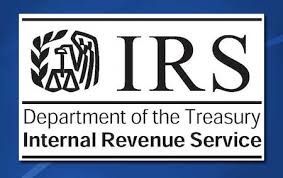For taxpayers other than corporations, the overpayment and underpayment rate is the federal short-term rate plus 3 percentage points.

IR-2013-96, Dec. 9, 2013
WASHINGTON ― The Internal Revenue Service today announced that interest rates will remain the same for the calendar quarter beginning Jan. 1, 2014. The rates will be:
- three (3) percent for overpayments [two (2) percent in the case of a corporation];
- three (3) percent for underpayments;
- five (5) percent for large corporate underpayments; and
- one-half (0.5) percent for the portion of a corporate overpayment exceeding $10,000.
Under the Internal Revenue Code, the rate of interest is determined on a quarterly basis. For taxpayers other than corporations, the overpayment and underpayment rate is the federal short-term rate plus 3 percentage points.
Generally, in the case of a corporation, the underpayment rate is the federal short-term rate plus 3 percentage points and the overpayment rate is the federal short-term rate plus 2 percentage points. The rate for large corporate underpayments is the federal short-term rate plus 5 percentage points. The rate on the portion of a corporate overpayment of tax exceeding $10,000 for a taxable period is the federal short-term rate plus one-half (0.5) of a percentage point.
The interest rates announced today are computed from the federal short-term rate determined during Oct. 2013 to take effect Nov. 1, 2013, based on daily compounding.
Revenue Ruling 2013-25 announcing the quarterly rates will be published in Internal Revenue Bulletin 2013-52, dated Dec. 23, 2013.
 EDD extension for San Diego wildfire
EDD extension for San Diego wildfire

 Seven significant new income tax law changes went into effect at the beginning of the year as a result of two pieces of legislation:
Seven significant new income tax law changes went into effect at the beginning of the year as a result of two pieces of legislation: File information returns (for example, Forms 1099 for certain payments you made during 2013. There are different forms for different types of payments. Use a separate Form 1096, Annual Summary and Transmittal of U.S. Information Returns, to summarize and transmit the forms for each type of payment. See the
File information returns (for example, Forms 1099 for certain payments you made during 2013. There are different forms for different types of payments. Use a separate Form 1096, Annual Summary and Transmittal of U.S. Information Returns, to summarize and transmit the forms for each type of payment. See the 